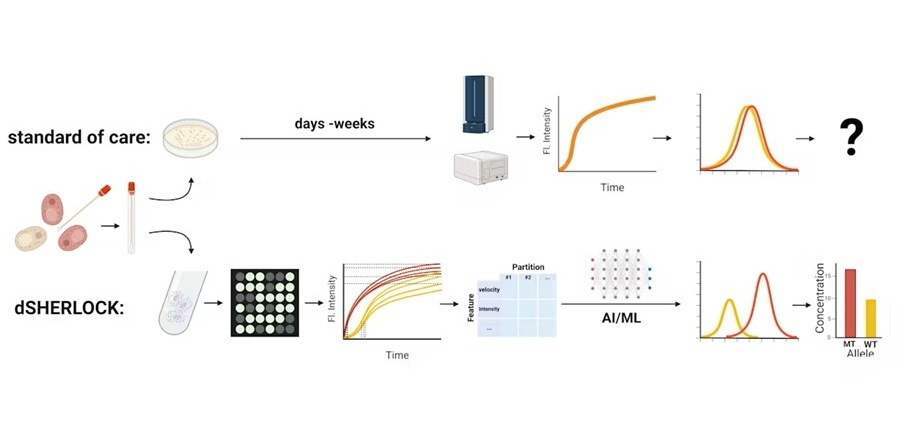Novel Sequence Analysis Services Improve Pathogen Identification
By LabMedica International staff writers
Posted on 20 Nov 2014
A set of new-generation sequencing (NGS) services provides unique tools for more effective identification of known and unknown microorganisms, including bacterial, viral, fungal, and protozoan parasite pathogens. Posted on 20 Nov 2014
Aperiomics (Ashburn, VA, USA) has now introduced its breakthrough Absolute-NGS Pathogen Detection Platform at the 2014 Annual Meeting of the Association for Molecular Pathology. The unique service addresses the biggest challenge in applying NGS to real-world analysis – making sense of the massive amount of data. Aperiomics, named after the Latin "aperio" meaning to reveal, is rolling out its platform package of 3 NGS services—Absolute-ID, Absolute-Discover, and Absolute-Biome—to provide better tools for rapid identification of known and unknown pathogens.
Absolute-ID is designed to identify known pathogens in virtually any sample. Absolute-Discover addresses the reality that many pathogens have not yet been discovered and many diseases are of unknown etiology. Pathogen identifications have historically been limited by what can be seen under a microscope and what can be cultured in a petri dish, but the Absolute-Discover service can discover new pathogens.
Absolute-Biome is designed to identify all microorganisms present in a given sample. Characterization of a microbial population, or microbiome, gives insight into the health of a human, animal, or environment. Such microbiome studies can be performed over space or time to study the impact of disease, drugs, or environmental changes in a complex system.
From a single test, innovative technology simultaneously tests for multiple pathogens using an unbiased sequencing and genomic analysis approach. The range of samples can include tissue, blood, plant, animal, or environmental. With a novel combination of genomics and informatics, Aperiomics has capitalized on high-throughput NGS and advanced Bayesian statistics to produce faster and better results than culture-based methods and even more accurate results than other molecular-based approaches.
Related Links:
Aperiomics













